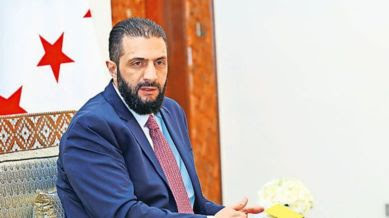Amirul Islam, New York: Syrian President Ahmad al-Sharaa arrived in New York on Sunday to take part in the United Nations General Assembly—making him the first head of state from Syria to do so since 1967. That year predates the long rule of the Assad family, which came to an end in December when Sharaa’s forces ousted Bashar Assad in a sudden insurgent offensive.
Sharaa is set to deliver his first speech at the Assembly, coinciding with its 80th session. Having once led the rebel group Hayat Tahrir al-Sham (which the U.S. had designated as a terrorist organisation), Sharaa had a US$10 million bounty on his head. Since taking power, he has focused on repairing foreign relations while advocating for coexistence among Syria’s domestic communities.
Though some nations in both the Arab world and the West remain wary of his militant past, Sharaa has moved to ease those concerns. He has also faced criticism: forces allied with his government are accused of violence against members of the Druze and Alawite minorities.
In his UN address, Sharaa is expected to press for relief from international sanctions that have hindered Syria’s recovery. Earlier this year, US President Donald Trump met him in Riyadh, announcing the lifting of many sanctions previously imposed during Assad’s presidency. Nonetheless, sanctions under the Caesar Syria Civilian Protection Act of 2019 are still in place and require Congressional approval to be lifted.
Another major topic will likely be Syria’s relationship with Israel. Since Assad’s fall, Israel has increased military operations in Syria, taken over a former UN buffer zone in the south, and carried out hundreds of airstrikes on Syrian positions.
Furthermore, Syria plans to hold parliamentary elections on October 5—the first since Assad’s removal. Under the proposed setup, two-thirds of the People’s Assembly will be elected via provincial electoral colleges, and one third will be appointed by Sharaa. Direct nationwide elections have reportedly been deemed impractical due to widespread displacement and missing identification documents after nearly fourteen years of civil war.


